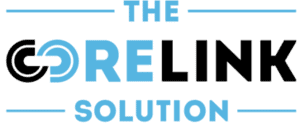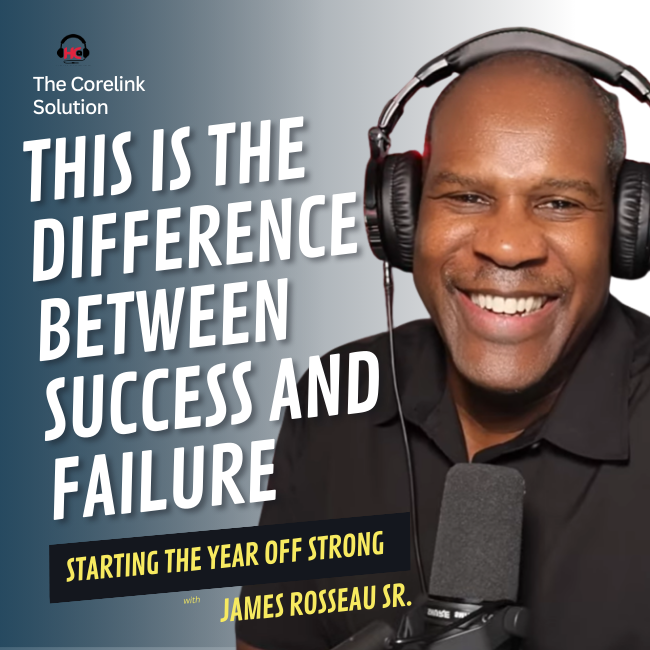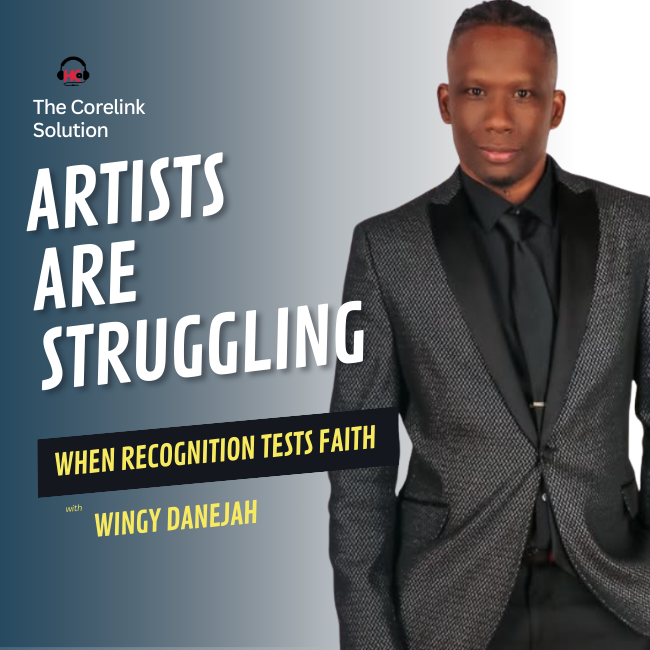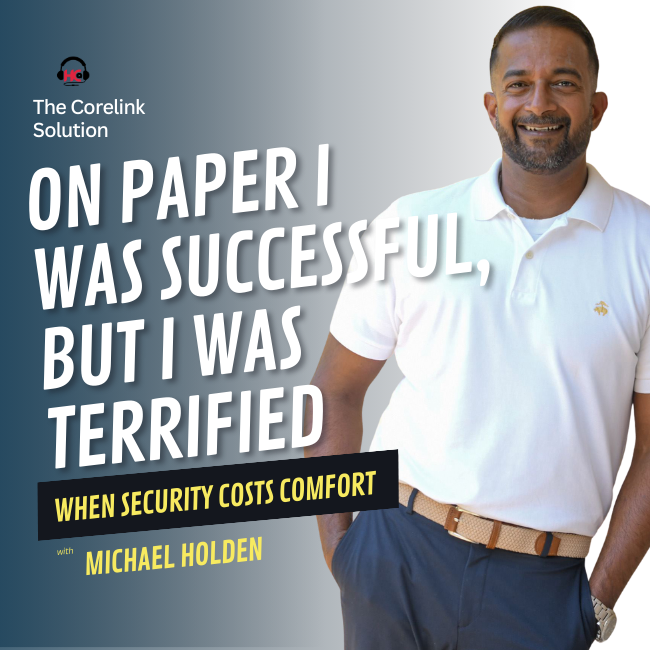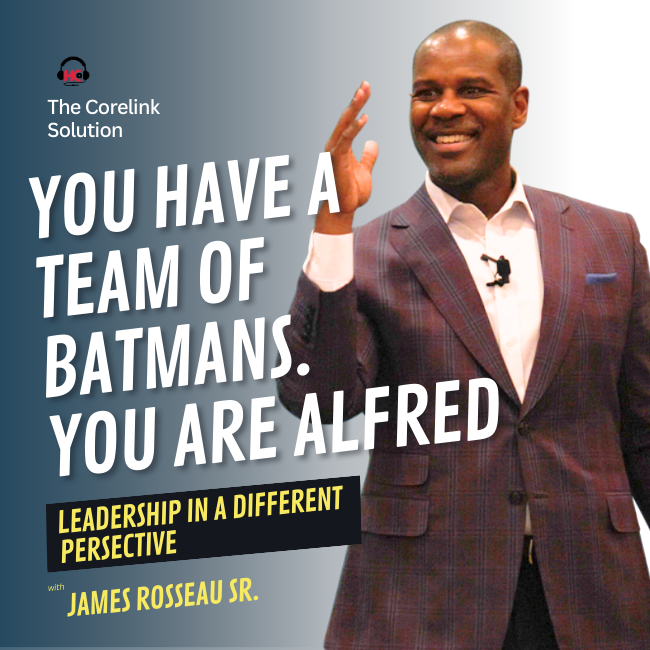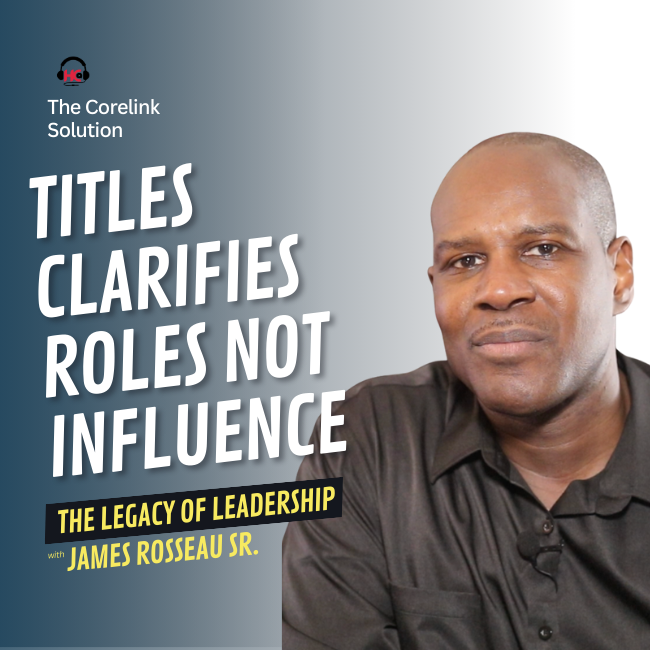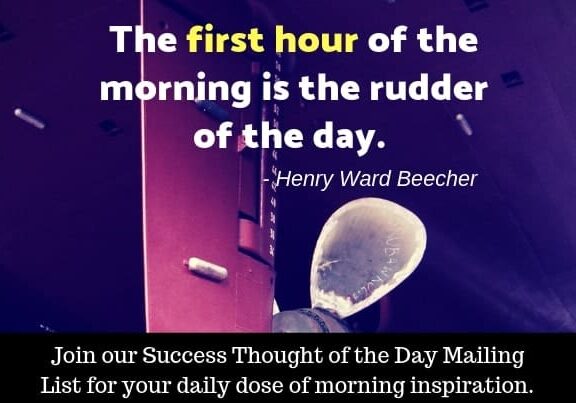Episode 34: The Strength of Vulnerability with Amita Mehta
Subscribe: iTunes | IHeartRadio | Spotify | Stitcher
The human element is not just a nice to have, it’s a business imperative. To be truly human, we must embrace all of our qualities, raising our emotional intelligence (which is more critical than ever given digital automation and social distancing) and our ability to be inclusive and effective leaders, personally and professionally.
Amita Mehta, C-Suite advisor and host of Outcast, shares her journey to inspire people to be authentic doers and unapologetic dreamers. With more than two decades of financial services experience with premier brands including Fulton Bank, JPMorgan Chase, and Prudential Financial, Amita now helps leaders bring the best out of their people, creating cultures of engagement.
During this episode you will learn:
- How vulnerability helps you personally achieve higher levels of self-actualization and become a more effective leader
- How authentic leadership and the power of vulnerability is a formula for attracting great talent and building productivity.
- Tips to guide your team during this time of Coronavirus (COVID-19).
Key Points
02:50 – Amita shares a fun fact about herself, which is that she had the opportunity to play collegiate women’s basketball.
05:00 – “Walk The Talk” – Amita shares what led her to her current path of work of helping authentic doers and unapologetic dreamers, helping people discover their passions and embrace their truths. She shares that the secret sauce was really being able to lean into her emotional intelligence.
07:00 – “The Defining Moment” – Amita shares a specific defining moment in her career when she began to feel a bit more self-actualized and less confined by the expectations of others. However, in realizing who she was, she also acknowledged how much she had been suppressing who she was.
09:00 – “Breaking Through” – Amita describes the shift that began to take place after being vulnerable and sharing who she really was with others. She also openly shares that prior to this she only saw three doors: Hide it and hope she makes it; live out loud, but lose all of her relationships, career trajectory, faith; or suicide.
14:30 – “Transitioning to her own business” – Amita shares the organic shift that begins to take place as she shares her story, as well as her advice, more transparently with others. This begins to create deeper relationships that leads to her playing advisory roles.
20:30 – “The Culture of Engagement” – We discuss two notions that have been understood for quite some time that “people leave leaders, not organizations” and that “organizations want to have a workforce that reflects the communities in which they do business.” But, it comes down to how do you engage your talent?
21:50 – “The Future of Work” – James shares some of the points around the data from the most recent Gallup survey and what is important to the workforce.
23:50 – “The Vulnerable Leader” – Amita underscores the reality of work-life integration and that everyone has to deal with it. Leaders that can bring everything to the table as opposed to flipping the switch from “life” to “work” are more relatable. Further, she discusses the hard benefits of being vulnerable as well as qualifying who to have that conversation with.
29:00 – “Operating in a Coronavirus (Covid-19) Environment” – Amita shares what she will change in terms of advice and such to her clients during this time.
36:00 – Amita shares one thing she failed at or said differently, that she learned to work to develop, which was not code-switching, but staying true to her value system.
Connect with Amita
Connect with James
- mailto:jamesrosseau@thecorelinksolution.com
- www.thecorelinksolution.com
- YouTube
The Full transcript
James: Welcome to another episode of the Corelink Solution, where we look to empower you with awareness and actionable insight. I am pleased to be joined by Amita Mehta for this episode. Amita inspires people to be authentic doers and unapologetic dreamers. She’s a passionate and dynamic business strategist, with more than two decades of financial services experience with premier brands, including Fulton Bank, JPMorgan Chase, and Prudential Financial. She developed a track record as a trailblazer and is a bold and trusted adviser to C-Suite Executive Management. Her distinct perspectives as a refugee, a lesbian, and a resourceful self-starter, intersect with her business acumen, resulting in a relatable and inspirational storyteller who helps individuals discover their passions and embrace their truths. She’s also the host of Outcast, a weekly show featuring misfits who are bold changemakers and rulebreakers.
So, Corelink Solution audience, please join me in welcoming Amita Mehta. Amita, welcome to the Corelink Solution.
Amita: Oh James, thank you so much for having me. I’m so thrilled to be here with you.
James: It’s good to have you. For those that don’t know, Amita and I had the wonderful opportunity to work for a number of years together at JPMorgan Chase.
Amita: That’s right. Gosh, it’s over five years now.
James: Yes, yes. And thank you again for having me on your show Outcast as well.
Amita: I have to say, James, I really appreciate you bringing your full self to that episode. I have to say, there were things I learned about you that I didn’t know about. So I appreciate you being vulnerable.
James: Absolutely. Hey, I didn’t ask you while I was there, but let me ask you now. Why did you choose to name that show Outcast?
Amita: That’s so interesting, James. I thought a lot about it, in terms of the things that I’ve faced. And then really thinking about friends and former colleagues that I’ve worked with. And the common thread seemed to be this concept of misfit. And misfit meaning, there’s a sort of social or societal context that it’s a bad thing to be different. And so, thinking about it, thought Outcast would be really relevant for the times. Things are so polarizing these days. And it’s helped people lean into their misfit or outcast qualities and embrace that to really make change in the world. So that’s how we landed on the name Outcast.
James: Gotcha. So share with the audience, if you would, one thing that most people that know you don’t know about you.
Amita: This one’s an interesting one. I would say, especially when I’m out talking to students. It’s not necessarily – I was thinking like the big reveal is, “Hey, I’m a lesbian.” That’s not really the thing. I think what people find interesting is that, at five foot two – I always used to say I was five foot three – but at this height, I actually played basketball, and played at the collegiate level. So, I would say basketball is something that people wouldn’t necessarily pick right off the bat, in terms of something I do.
James: Gotcha. Well you know, there’s been a lot of – well, I wasn’t going to call you shorter, but… Is five foot two considered short for women’s basketball?
Amita: I wouldn’t say necessarily so. I think I sort of held back on that in my college days. I guess I sort of took myself out of the running, thinking five foot two was too short. But again, you look at men’s basketball. I mean, think about Spud Webb. I mean, that was probably the equivalent of me being five foot two in this arena. So I think it is all about mindset too. Again, even at that height, it wasn’t necessarily a disadvantage for me in high school and college ball. So it’s sort of how you see the court, so to speak. You’ll find I’ll use a lot of analogies, sports analogies, as we talk.
James: Yeah. That’s good. So, one of the things that was really apparent to me when we talked back then, before Outcast and even now, as I was preparing for this, is some of the powerful words around what you’re doing right now. Authentic doers and unapologetic dreamers, right? In terms of what you inspire people to be, helping folks discover their passions and embrace their truths, which are things that are really near and dear to my heart and what I’m about. And then being, again, this bold and trusted adviser to C-Suite. What has you here at this moment? What led you to this path of work?
Amita: You know, I would say, James, I could say all the things in terms of leading large scale implementations, administering billion dollar syndicated loans – that all sounds sexy in terms of execution, in terms of bottom line results for organizations. But what I found over time, through the past two decades in the corporate world, it wasn’t necessarily just being able to execute and do my job well. That was all foundational, but the secret sauce was really leaning into my emotional intelligence as a leader. So it was those sort of inflection points and challenges that I was met with in my career that led me up to now. And I would say, it was just a build in the making because as I was encouraging and coaching people to bet on themselves and lean into their authentic leadership, I found that, “wait a minute, Amita. It’s about time that you start walking the talk.” And so, that’s what led me here, in terms of launching out of the corporate world and really betting on myself to be able to show people that you can be successful no matter what you do and choose to pursue in your career and life.
James: Yeah. Now, you spent quite a number of years in the financial services world. Was there any particular defining moment that helped identify that need to exit, if you will, and kind of get you moving down that path?
Amita: Yeah. I would say it was relatively early in my career, James. This was actually when you and I were at JPMorgan Chase together. At that time, I was sort of finding my independence as an individual, breaking free of expectations that family and friends sort of set upon you. I started to become more self-actualized as an individual. Quite honestly, my student loan debt was paid off. I was actually making money. And so, I was feeling like –
James: Freedom.
Amita: Yeah, freedom! And a sense of freedom and happiness in terms of like, wow. And we talked a little earlier about this sort of self-sufficiency. That I was really making it out on my own. Everything that I thought I could do, I felt like I was doing it in the corporate environment. And then, that just sort of set a light bulb off in terms of who I was, as an individual. And I started to recognize that all the sacrifices and living up to all the sacrifices my parents had made for me. Again, as you mentioned in my bio, I’m a refugee, and so I always felt like I had to live up to a certain expectation. And when I started to realize who I was as an individual, and harboring this secret of being a lesbian, it really started to take a toll on me, professionally and personally. I was withdrawing from relationships. I was appearing aloof at work. I wasn’t creating a climate of trust. I was basically performing another full-time job in terms of hiding who I was. It was truly exhausting. And when I finally confided and leaned into a true ally in my twin brother, that helped me – it was tough conversation. I couldn’t even say the word, James. But when I was really able to lean into who I was, it opened doors for me to lean on allies in the workplace, especially the male leaders, just to let them know, “Hey, this is what’s going on with me.” And it clicked with people. And then, when I was able to feel encouraged to let people in – because again, and I think you can relate to this, it’s hard to ask for help. And finally when I did that, and people saw the true person that I was, and people could trust me, that’s when things really started to shift for me in a good way.
James: When you say you couldn’t even say the word, you mean to your brother to start to unpack and show who you were? Is that what you mean?
Amita: Absolutely. He’s my best friend. He’s my twin brother. And I always get emotional every time I talk about it, James. When I called him, it was just this moment of… It was a defining moment for me, in terms of, “is he going to accept me?” Because when I called him, he’s like, “What is going on? Where have you been? I haven’t heard from you.” And then, finally, I mean literally, he thought I was speaking an entirely different language. I couldn’t say the world ‘lesbian.’ It was like, “le -le -le…” I couldn’t even say it. And finally, I blurted it out and it was completely silent. And he just shared. He was like, “Amita, you’re still my sister. You’re still an amazing person. You’ll always be my wonder twin.” And so, that was defining for me, in terms of like, wow. Yeah. I told him he saved my life in so many ways.
I have three doors. The first door is I hide it. Pack it away and just continue to keep my head down. Do the work and hope I make it, everything that I built. Number two, I live out loud and be who I am, and risk losing all my relationships, the career trajectory that I thought I was going to be on – I thought I was going to lose that. I thought my faith was going to be at risk, in terms of being a Hindu. And obviously, being concerned culturally, for my family.
And then, the final phase, the final door, the third door was suicide. And it just took him aback. And I said, “Yeah, these were the three things I contemplated.” The suicide one was definitely the lowest on the list, but it did cross my mind.
James: That’s a lot. So, if you had to choose three words that describe how you felt before that call and after that call… I’m just curious. And I know that’s tough, to boil down to the three words. What would the three words be, before the call, that you felt?
Amita: Sure. Before? Depleted. Terrified. Weak.
James: How about after the call?
Amita: And then following the call, James, I would say, empowered. Relief. Brave.
James: And was he the first person you told?
Amita: Yes. Yes, he was the first one, and he actually kept it a secret for another five years, from my parents. Because it took awhile for me to get comfortable in my skin. And that’s the thing, James, is I was putting so much pressure in terms of already thinking ahead, in terms of not putting faith into others, and that people would still recognize me for me, and know that I still had the credibility and kindness that I always had. And so, that was the pressure. Cause I didn’t lose one person in the process of living out loud.
James: That’s great. So did that become one of those moments that allowed you to then open up, and essentially became a springboard to help you kind of move forward in this direction? Is that true?
Amita: Well, yeah. And I should back up for a moment. Because there was an opportunity in my career, where it finally bubbled up to the surface that I truly need to live authentically and make sure I’m bringing my whole self to work, because there was an opportunity in Global Diversity. I honestly thought it was going to be a longshot. It was an opportunity that I was so excited about. It was going to be in Manhattan, out of headquarters. And I landed it. I landed the role in Global Diversity and then it clicked with me that I can’t very well be in a role where I’m encouraging people to bring their whole selves at work when I’m hiding. So that was sort of the big impetus and inflection point to say, “Woah, hang on, Amita. You need to take a look in the mirror and really be honest.”
James: Gotcha. That’s good. So now, it sounds like the first part was your own personal transformation. Talk about how you began to shape the business concept and move to transforming from the corporate life into your own business.
Amita: Yeah. Again, it sort of organically happened, James, in that I would transition and move into roles where I was running large scale implementations, executing on business strategies for senior leaders. I was chief of staff and business manager to several senior leaders. So that just started to morph into building relationships with leaders that trusted the truth in me, like they’d seek my counsel sometimes. And sometimes be afraid of it.
I’ll never forget I walked out of a meeting. I was relatively new in a role. It was a group of people, my new boss. And everyone shuffles out. And I’m still standing in front of my new boss. He’s like, “Can I help you?” I’m like, “Yeah, do you have a second?” He’s like, “Yeah, sure.” And what I shared with him was, “I have some feedback. Just wanted to share with you, did you sense some of the fear that was in the room?” And he’s like, “What do you mean?” And so, I shared that it just seemed that people were fearful to share their points of views on things, and essentially afraid of him. And he’s like, “What do you mean?” And so, I said, “Well, let me get at it. What I’m trying to say is, have you thought about, it’s not what you say, it’s how you say it?” And he slumped down in his chair for a moment, and I thought, “Oh, I’m going to be fired.” [laughs] And he looked up and he’s like, “You know, no one’s told me that directly, but that’s something I’ve been working on.” And that shifted our relationship.
And so, by being honest with individuals in a way that is not putting them on the spot, they would seek me out as an adviser. And so, that sort of followed me, in terms of my reputation. Well, I’m a straight shooter. I’m comfortable having uncomfortable conversations with individuals. So that just organically happened with leadership. And then, as I started leaning into sharing more of myself, in terms of – I’m human, as you lead teams. Giving tactical examples out there, in terms of how you run your town halls and your leadership teams, in terms of making sure everyone has a voice at the table. So, that was sort of the impetus there, James, in terms of what got me to making the launch, in terms of being a full 360 leader, if that makes sense?
James: So now, as you start to think about, again, creating a business. Because once you’ve been in corporate for quite some time, hanging your own shingles and starting your own business can be a daunting task. Branding, getting your first clients, so on and so forth. And you’ve done it successfully. Talk a little bit about what you offer your clients, in terms of the package, so to speak?
Amita: Yeah. It really did begin in terms of out representing organizations at conferences. It was about the business acumen I brought. So, being able to share, not only my work, but how I approach my work, as an individual and as a leader. So, what we were finding was it was my story. In terms of being able to talk through all the adversity I’d faced, sort of being that resourceful self-starter, and even being a basketball player. Being that point guard translated itself into my work. So, that was sort of like the platform, James.
So, it sort of started different from how I’m managing my business plan now. It started with me as the brand. [laughs] And then, me recognizing that, wow I do bring this entrepreneurial mindset. I was very opportunistic in financial services. I really have this rounded out skill set, from a business acumen side. That translates itself well with working with other organizations. That was an appeal to me to be able to say, wow, here’s an opportunity where I could work for so many other brands and industries, retail as well, and translate, “Okay well, I can take major bodies of work that you as a leader may not have time to do. You know it’s a priority, but you’re putting out fires all day.” So, I can come in, embed myself with your team, begin to mobilize and prioritize your work. But then also, as an embedded resource, be that lens, that ear, to senior leaderships to say, “Hey, this is what I’m hearing from your team, perhaps that maybe you’re not hearing directly.” And so, really building that trust with the team and leadership. It’s sort of like that point guard, building the relationship with the rest of the players, but then really advising the coach on the direction of things. How are they showing up as a leader? How are they managing their meetings? Again, I’m an objective observer, and can come back and report back to say, “Well, when you led that meeting today, you were on your device how many times? Your phone or your computer? That really set a tone that made it seem okay for the rest of your team to do that and you weren’t present.” So, just little examples like that, not only just how you’re managing the work and how to get it done, but then, how are you showing up as a leader?
James: Gotcha. I know a couple of the topics and such that you drive are inclusive leadership, the Future of Work, and it all seems to center around a Culture of Engagement. Cause what I heard even there, in terms of how you’re coaching the leaders, is all around engagement. Seems to be kind of a meta theme, if you will. Is that fair?
Amita: A hundred percent. How do you be that unforgettable leader? James, we talk a lot about, people leave leaders, not organizations. So I think that’s such a business imperative these days, as it relates to how you’re going to have a sustainable business. Again, there’s a big element of making sure your teams look like the communities in which you serve. But then, how are you engaging your talent? Are you encouraging them all to bring their whole selves to work? Because it’s one thing to look like the community, but then, there’s another element of making sure it’s not window dressing.
James: Absolutely. And what’s so interesting is when you talk about inclusive leadership and the future of work, one of the things, when people approach it, there’s a way to approach it from feeling it and what people feel about a strong inter-generational workforce, and what the melting pot of the workforce looks like, so to speak. And then, we’ve started to see increasingly more and more data. The latest data I’ve seen from Gallup and the changing demands of the workforce that they’ve published around the things the workforce is looking for are very different than what they were five years plus ago. What they say, for example, from my paycheck to my purpose. People are more focused on purpose than ever before. From satisfaction surveys to my development, I am so focused on my development nowadays From being a boss to coach, somebody who’s focused on continuously coaching me is important today. From an annual review, which is very static, and hopefully people stopped that years ago, to ongoing conversations. From weaknesses to strengths. And again, from my job to my life. And I think that last one is so important.
One of the things I recall reading is, in other countries, as an example, is that they view their job success as equal to life success. And so, the two are not separate. They’re intertwined. So, when we used to talk about work life balance, a lot of people started changing the phrase to work-life integration. It couldn’t be more different nowadays. These two are intertwined. When you’re out talking about these topics, one of the things that I know you also have interwoven into all this is the leader’s ability and willingness to show vulnerability and the strength of vulnerability. Talk a little bit about the importance of that and why that’s important.
Amita: I think you hit it on the nose there, James. I’m sure you remember, and I don’t want to date ourselves…
James: Thank you. [laughs]
Amita: [laughs] But I’m sure you recall when you show up to work, in terms of, here’s my work life, here’s personal life, here’s my friend’s life… You had all these compartments to what you would manage. Think about all five generations. There are five generations in the workplace right now. It all intersects, in terms of life and work, to the extent that we’re weaving in life into our vernacular. How we’re showing up every day is important. Again, I think about leadership team meetings. You can just hop right to, “Okay, let’s jump into the strategy session. What are our objectives? Let’s develop our KPRs.” But when we miss out on the human element, I think that’s where you lose people now these days. You lose people in terms of, “Well okay yeah, I can deliver, I’ll get paid, but why am I here?” Because this is part of my life now. How do you weave in bringing life into, literally life, into your meetings, when you’re talking about vulnerability? Talk about your Cousin Bob who brought his partner to the family picnic. So, it just makes you feel more relatable as a leader. Even, “Hey, I’m caretaking for a family member or an elderly parent.” So, when you let people in, it helps people recognize that you are human and that they might be more open to share.
James: Got it. So, let’s use DiSC, for example, to help think about different leader profiles. Around the DiSC continuum, I’m an S, so I’m naturally going to skew towards more relationships and understanding. Let’s take a D profile as an example, who is very focused on getting things done, etcetera. Or a C, who’s a little bit more analytical. When you think about talking to leaders about showing vulnerability and expressing the benefits of it, how do you have that conversation?
Amita: Oh, that’s a really great question. And to your point, cause some people say, “Hey, I’m a salesperson. I’m here to just come in, deliver, and get out.” So I do think it bodes an even broader conversation because, again, a lot of people that I speak to are in their roles because that was their career trajectory. Because they were a great individual contributor. And then, to get promoted, you have to manage people. Again, I think that that’s shifting now, James, in terms of the future of work and upscaling. So it’s not necessarily a bad thing. You can still get promoted as an individual contributor, but I feel like, historically, it’s always been, okay well, you’re an individual contributor, now you get to the next level, now you need to lead people.
That’s the conversation I actually begin with, with people. “Do you feel like you’re in the right role, in terms of being a leader of people? Is this the space you even want to play in?” So, I think it’s having that broader conversation, in terms of affording people an opportunity to self select out, perhaps? Because sometimes, I’m sure perhaps you’ve experienced it and you’ve seen people, and you’re like, “How are they even in a leadership position?”[laughs] Right? And so, I think it’s being able to disarm people to have that conversation, to say, what are you? Does this light you up, in terms of coaching and leading people? And look, there are going to be people that say, “No, that doesn’t. I’d rather just come in and do my job.” I think that’s the shift now, in terms of the vulnerability. So I think the vulnerability conversation comes next, when you know that yes, we have the right person in the role and they’re definitely excited and lit up about the prospect of coaching people.
James: That’s good. You know, one of the things that we can’t help but talk about is where we are right now, in our country and the world’s situation with the Coronavirus. I think about, for example, when 9/11 occurred and I was managing a large team at JPMorgan Chase. Our team was in transition from parts of New York to Delaware. And I remember that day. I was actually supposed to go to New York that day. I was supposed to be on the Amtrak train, which I usually got on about five in the morning that got me to my New York office… I would walk into my New York office about 7:30 AM. And that morning, driving to the train station, I decided not to go. I literally was on the way to the train station and I said, “No, I’m not going to work in New York today” and I headed to Delaware. And the planes hit that morning, and my wife was trying to track me down as I didn’t tell her I was working out of Delaware that day. But then that day just took off. Because of the role I was in, I was managing HR Service Delivery at the time. Not only were we trying to comfort our team and help find team members, but we also became the call center for the company’s employees. And then, we also, as a bank, helped a lot of other financial institutions, et cetera. And same thing with Hurricane Katrina, Hurricane Rita, etcetera.
So, having been in leadership roles in different times and different situations – the New York Blackout, etcetera – it calls for different things. And leaders learn a lot doing those kinds of situations. And they learn from people like yourself. They call on you to help fine tune things and bring out different skills. In this moment, when you’re going to be delivering your talk around inclusive leadership and the future of work, when it calls for leaders to grow different skill sets, whether that’s helping with thinking about hyper remote working and things like that… What are the focal points within your talk you’re going to amplify or de-emphasize because of where we are? What are the things that you’re starting to think about?
Amita: Yeah, and it’s such a shift right now, James, in terms of the environment we’re living in. Certainly, there’s been quite a pivot in the conversations I’ve been having, with the leaders and individuals. This can feel quite isolating. So even as we think about 9/11 – I was actually in New York that day, working out a migration. Right away, when you’re moving to a virtual environment, when you’re so used to having people pop in your office, or that you can have that face to face time. And I know it becomes more amplified now because we live in the world of social media and technology access. But what I’m hearing from leaders now is, “Amita, it does feel isolating. I don’t have my team at the ready necessarily. How can I be more effective?” And what I impart on them is over communicate. Maybe some of them want to know that.
Communicate. Have your huddle sessions that make sense in the morning with your team, so that you feel connected. Not to say micromanage, because I think another key element in this is trust your people. Even though you don’t see them every day or if your typical process is to walk the floors, that’s not going to be the case right now. But you have to trust your people and trust that they’re doing their work. Also, try to afford opportunities where – again, some people don’t like video chats and things like that – but really understanding how people want to be communicated to, and gathering people. And just ask them, how are they doing? So I think also, James, call the elephant out in the room. “Hey, we know that this pandemic is happening,” for example. “How are you doing?” So even just check ins with your team. Yes, it is about the work, getting the work done. Client needs are shifting, but just simple check ins with the team. Record a video, even if it takes five times, five takes. [laughs] Shoot from the hip and be vulnerable, and share with your team to let them know that you’re there, even though you’re not with them brick and mortar. And I think, James, this is really going to accelerate the shift to – unless your role is indicative of having to be truly on site – I think this is really going to show organizations that people can pretty much work from anywhere.
James: Yeah. Those are good. Absolutely. So to recap what you said, just to make sure I got them, so
Over communicate. Understand how people want to be communicated to – that’s such a fine point there. Understand how people want to be communicated to. And as a leader, you hit a good point there. You can use video conferencing. There are so many tools available and you can bring people together virtually.
Trust your people. Afford them the opportunities to work differently.
Check in to ask how people are doing
Record a video, shoot from the hip. I love that. Send around some things. And sometimes levity helps a lot.
Amita: Yes.
James: But one of the thematic things that you said through all of those is be human. [laughs]
Amita: Yes, the human element.
James: Be human. There are not books for everything or scripts for everything, and that’s actually a good thing, right? Be human.
Amita: Absolutely. A hundred percent. I think also knowing where you can create boundaries too. I have realized over the past year and a half since I’ve launched out on my own, it was hard. It was hard to be out here, working remotely or at different sites. So I think I’ve gotten a little bit of a head start, relative to my peers. But I think trying to get comfortable with the uncomfortable but creating boundaries as well. I think you nailed it on the head. I took some learning from you when you were on my show, Outcast, about taking some time for self care. You have your morning ritual. Like, you do not check that phone. And look, I keep my phone in the other room now in the mornings. It’s hard, but really creating the boundaries because some people may find that they work better from five to ten, or what have you. But I think the one piece that I learned from you is making sure that you’re creating boundaries and managing self care.
James: Yeah. Absolutely. Well you know, as we start to wrap up, there are a couple of questions I have for you. One, as you think back through your career – your illustrious career. [laughs]
Amita: [laughs]
James: What’s something you failed at?
Amita: Hmm, this is a good one. Because we don’t like to say what we failed at. [laughs] This was something I think over time – and I’ve learned it now, now that I’ve had some experience under my belt – learning not to cover. Or – I’m losing what the one word now, there’s a hot word that they call it – code-switching. So covering, meaning hiding aspects of who I am. Again, I wouldn’t want to highlight, like there were times I’d be sitting back in the office and not out on the golf course doing business. Because that was just sort of the rules. I got hooked on it and learned how to golf. I think the code-switching, in terms of changing – not like your value base – but how you’re going to present and how you’re going to show up and be that advocate or ally. So I wouldn’t necessarily say it’s something that I learned, because I feel like there were times along the way that I could have stepped up and leaned in on things that perhaps didn’t sound so right in a meeting. But instead, I thought, “Will they not like me if I make a point that goes against the grain? Could I get fired? Could I lose my job? I don’t want to sound like the loud-mouthed woman, you know?” So there were times that I learned throughout my career and it’s something I still work on today, in terms of not doing that code-switching and just staying true to my value base system. And making sure I’m speaking up. And I feel like that’s served me well now, over time, because I feel like people will learn to trust you if you’re willing to show them the mirror.
James: Yeah. That’s good. Code-switching, I haven’t heard that term before. That’s good.
Amita: Yeah. code-switching. That’s a big one right now.
James: That’s good.
Amita: James, have you ever felt like you’ve had to code-switch or cover aspects of who you were to feel like you needed to succeed?
James: Oh, for sure. For sure. You know, earlier in my career, I remember someone saying this to me in my early days at Chase – this was even before the JPMorgan merger – that I was very good at – how’d she say it? – being calm under pressure, and being cool to the touch when things are under a blaze. And part of that was, quite frankly, the feeling that, just being honest, as an African American male, I had to be careful of how I react. Right? Because you start with a certain perception of how African American males are perceived. I think that’s just true. And today, I still feel the same way. I think what I’ve learned over the course of time though is that doesn’t mean be silent. That means I get to choose my reaction but not forfeit my vote.
Amita: Right.
James: It’s important to add a semicolon. There was a time that I was choosing my reaction but my reaction was not to do anything at the moment. I needed to add the semicolon, but not forfeit my vote. So I needed to find a way to, even in the moment, make sure that my voice was heard in the appropriate way.
Amita: Yeah. Yeah, I can totally relate.
James: So yeah, for sure. Hey, listen. It was so good to revisit with you. And I’m so happy for you, proud of everything you’re doing, with your business and the Outcast show. Let the audience know – and we’ll certainly post this on the website as well, but for those who are listening that may not visit the website, please let folks know how they can get in touch with you if they’d like to do so.
Amita: Yeah, absolutely. Got my website. Always continuing to morph it and evolve it. It’s amitamehta.com. And you can follow me at @amitamehta11 on Instagram. I’m trying to be better with social media. [laughs] LinkedIn for sure. You can certainly find me on LinkedIn. That’s how you can certainly find me. And of course, Outcast. If you’re an outcast yourself, look me up. And I would love to have some more fellow misfits out there changing the world on the show.
James: Awesome. Well, thank you again for joining us. Appreciate it.
Amita: Thank you so much, James.
James: You are informed, empowered, and can now be accountable. What were some of your takeaways from this episode? I always enjoy hearing from you, so please share. Additionally, if you have questions, hear some things that are new to you, or need some clarity on some of those things, I am here to serve. Go to our website at thecorelinksolution.com/podcast. Right below the show notes, you’ll see a comment section. Tell me about some of your takeaways from the episode. You can ask your questions, you can mention challenges in the areas that we cover, or tell me about guests you’d love to hear from. Alternatively, you can do the same through social media channels, on Facebook, Instagram, or Twitter. Thank you as always for linking up and I look forward to seeing you next episode.

